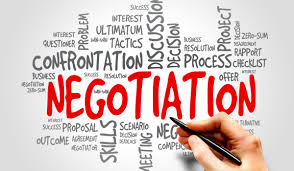
Stephen Robbins defines conflict as "...all kinds of opposition or antagonistic interaction. It is based on scarcity of power, resources or social position, and differing value systems."
Conflict can be healthy if it leads to new insights, greater understanding or prevents the long slide into unquestioned habit and groupthink. Conflict can be defined as a process where one party perceives that another party has negatively affected (or is about to negatively affect) something of concern to the first party.
Some people believe that conflict should be avoided. This is also believed to probably be unrealistic. (Traditional approach)
Some people believe conflict is a natural part of life and people need to learn how to deal with it. (Human relations approach)
Some people believe conflict is beneficial, even necessary, to promote progress. (Interactionist approach)
Functional Conflict: When conflict outcome supports the goals of the organisation, it is said to be functional.
Dysfunctional Conflict: If the conflict outcome does not support the goals of the organisation or hinders its performance, it is viewed as dysfunctional.
Click here to view a video that explains how to deal with conflict.